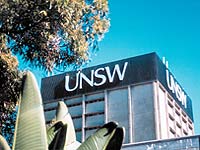Globalisation and Intellectual Property Law - LAWS8050
Faculty: Faculty of Law
School: Faculty of Law
Course Outline: See below
Campus: Kensington Campus
Career: Postgraduate
Units of Credit: 6
EFTSL: 0.12500 (more info)
Indicative Contact Hours per Week: 2
Enrolment Requirements:
Academic Program must be 9231 or 5231 or 9220 or 5750 or 9200 or 5740 or 9210 or 9230 or 9214 or 5214.
Excluded: JURD7350
CSS Contribution Charge: 3 (more info)
Tuition Fee: See Tuition Fee Schedule
Further Information: See Class Timetable
View course information for previous years.
Description
This course takes an interdisciplinary and theoretical approach to examine: the history of intellectual property globalisation: governmental and NGO organisations involved in his process; political debates, alliances and ideologies that have shaped global intellectual property law-making; the economics of globalisation and intellectual property; and sociological, cultural and domestic legal effects of globalising through intellectual propertization.
Issues will be discussed in the context of wider debates concerning sovereignty, development and national identity, and the examination of case studies such as the debates about access to essential medicines, biopiracy, and owning life. Students will gain a good understanding of the major debates surrounding the development and application of intellectual property law in a globalised economy.
LLM Specialisations
Corporate Commercial & Taxation Law
International Business and Economic Law
Innovation Law
Media and Technology Law
Recommended Prior Knowledge
- LAWS8017 Intellectual Property: Regulation and Policy (PG course) or
- LAWS3021 Industrial and Intellectual Property (UG course)
Course Objectives
- describe historical events and factors that have led to the contemporary global intellectual property framework;
- understand and knowledgeably discuss the interlinked political, economic and sociological issues related to intellectual law and policy in a global environment;
- knowledgeably discuss and debate various theoretical perspectives on international intellectual property law-making in a globalised economy;
- evince an understanding of ways in which the global intellectual property framework is influenced by, and influences, other areas such as trade, commerce, politics, scientific development, sovereignty, and economic development.
Main Topics
- Introduction to the Globalisation of Intellectual Property Regulation (A critical overview of the Institutional Framework, Key organisations, and Key Legislation and International Agreements).
- History of Intellectual Propertisation and the Globalisation of Intellectual Property Regulation.
- Non-Western Methods of Regulating Access to and Use of Ideas, Information, Knowledge and Symbols.
- The Politics of Contemporary International Intellectual Property Regulation and Governance.
- The Economics and Political Economy of Contemporary Intellectual Property Regulation.
- The Sociology of Globalisation via International Intellectual Property Standardisation.
- Issues in Intellectual Property Regulation in a Global Setting:
- Sovereignty.
- Legal Transplants.
- Development.
- Case Studies of Intellectual Property Regulation in a Global Setting:
- Copyright, Patents and Traditional Knowledge.
- Patents and Access to Essential Medicines around the World.
- Trademarks and Multinational Branding Practices.
- The Cultural Impact of Globalising via the International Standardisation of Intellectual Property Laws.
- Conclusions: Blending Theory and Practice in Domestic and International Intellectual Property Law- and Policy-Making.
Assessment
Course Texts
Required:
A list of other recommended works (including those listed below) will be provided to students during the course. Excerpts from some of these works will be included in the booklet of reading materials.
- Michael F. Brown, Who Owns Native Culture? (Cambridge, Mass.: Harvard University Press, 2003).
- Rosemary Coombe, The Cultural Life of Intellectual Properties (Duke University Press, 1998).
- Ronan Deazley, Rethinking Copyright: History, Theory, Language (Cheltenham, UK: Edward Elgar, 2006).
- Peter Drahos (ed), Intellectual Property (Aldershot: Ashgate, 1999).
- Peter Drahos and John Braithwaite, Global Business Regulation (Cambridge: Cambridge University Press, 2000).
- Peter Drahos and John Braithwaite, Information Feudalism (London: Earthscan, 2002).
- Alison Firth (ed), The Prehisory and Development of Intellectual Property Systems (London: Sweet & Maxwell, 1997).
- Alexandra George (ed.), Globalization and Intellectual Property (Aldershot: Ashgate, 2006).
- Eva Hemmungs Wirten, No Trespassing: Authorship, Intellectual Property Rights, and the Boundaries of Globalization (University of Toronto Press, 2004).
- William M. Landes and Richard A. Posner, The Economic Structure of Intellectual Property Law (Belknap Press, 2003).
- Christopher May, A Global Political Economy of Intellectual Property Rights: The New Enclosures? (London: Routledge, 2000).
- Christopher May, The Information Society: A Sceptical View (Cambridge: Polity Press, 2002).
- Lyman Ray Patterson, Copyright in Historical Perspective (Vanderbilt University Press, 1968).
- Susan Sell, Public Power, Private Law (Cambridge: Cambridge University Press, 2003).
- Brad Sherman and Lionel Bently, The Making of Modern Intellectual Property (Cambridge: Cambridge University Press, 1999).
Resources









